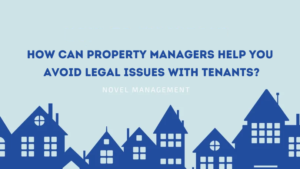Under Florida landlord-tenant laws, landlords are permitted to collect security deposits from those renting out their property.
That said, Florida landlords have to ensure that they understand the security deposit laws in Florida if they want to avoid legal issues with a tenant. It’s also essential to ensure that tenants understand the provisions regarding security deposits, including the allowable deductions, and when the remaining amount will be returned to them after the lease term ends.
Keep reading if you’re a landlord who wants to have a solid understanding of the state’s policies regarding the collection, storing, and returning of tenant security deposits!
Advantages of Collecting a Security Deposit
As a landlord in Florida, collecting a security deposit from tenants offers numerous advantages, such as:
- Financial Protection: Security deposits provide a financial cushion for landlords in case tenants damage the rental property or fail to fulfill their rental obligations.
- Property Damage Repair: The tenant’s security deposits can be used to cover the cost of repairing any damage to the property beyond normal wear and tear caused by the tenant during their lease term.
- Cleaning and Maintenance: A landlord can use the deposit to cover cleaning and necessary maintenance or repair costs that are the tenant’s responsibility.
- Encouraging Responsible Tenancy: The presence of a security deposit encourages tenants to take care of the property and meet their existing lease agreement obligations.
- Peace of Mind: Landlords can have peace of mind knowing that there is a financial resource available to cover any unexpected costs or damages, beyond normal wear and tear, associated with the tenancy.

A General Overview of Security Deposit Laws in Florida
Here are the things that a landlord should know when it comes to handling security deposits under Florida law:
Security Deposit Limits
In the state of Florida, there is no statutory limit on the amount a landlord can charge for a security deposit. However, charging too much can deter tenants, as such the amount should be reasonable and customary for the area, typically equal to one to two months’ worth of rent.
Nonrefundable Fees in Florida
Florida’s security deposit laws allow landlords to charge nonrefundable fees, but they must be clearly stated in the written lease agreement. Nonrefundable fees can cover items like pet fees, application fees, or cleaning fees. These fees should not be confused with the security deposit, which is refundable. If the landlord fails to disclose the nonrefundable fees in the rental agreement it may lead to disputes between a landlord and their tenant later on, and the tenant may be entitled to a refund after their tenancy ends.
Storing a Tenant’s Deposit in Florida
Landlords are required to hold the security deposit in a separate and identifiable bank account under Florida law. The tenants’ money could be held in an interest-bearing or non-interest-bearing account, or the landlord can post a surety bond with a Florida banking institution.
What’s more, for rental properties with five or more units, the landlord must inform the tenant of the name and address of the bank where the money is being held. The disclosure must also include the tenant’s entitlement to interest on the deposit, if any.

Written Receipt of the Security Deposit
Within 30 days of receiving the accurate security deposit amount, landlords are required to provide the tenant with written notice that includes the name and address of the financial institution where the deposit is held, and whether or not the tenant is entitled to receive interest on the security deposit. Failure to provide the tenant written notice can result in the forfeiture of the right to claim any portion of the deposit for damages.
Reasons for Withholding a Security Deposit in Florida
The Florida’s security deposit laws permit landlords to withhold the security deposit for the following reasons:
- Damage to the property, at the hand of tenants, beyond normal wear and tear
- Costs associated with cleaning or repairs beyond ordinary maintenance
- Other charges stated in the lease agreement
- Unpaid rent or utility bills, which also can constitute a reason for an eviction
- Breach of the rental agreement, including early lease termination without proper written notice
A Walk-Through Inspection
While not required by security deposit law, it’s a good practice for a landlord to conduct a walk-through inspection with the tenant before they move in and after they move out. This can help document the property’s condition and any existing damage or track normal wear and tear. Both the landlord and their tenants should sign a written inspection report.
Security Deposit Refunds in Florida
After a tenant vacates the property, Florida landlords have 15 days to return the security deposit in full. If the Florida landlord needs to deduct from the security deposit, the remaining amount must be returned to the tenant within 30 days after sending a written itemized written notice of the deductions made from the deposit.

If deductions are made, the initial written notice must include receipts or estimates for the repair costs. The written statement of deductions must also be delivered to the tenant’s most recent address via certified mail within 30 days from when the tenant vacates the rental unit.
Property Ownership Changes Hands
If the ownership of the property changes during the tenancy, the new owner becomes responsible for managing the security deposit. The new owner must notify the tenant of the transfer in writing and provide the name and address of the financial institution where the deposit is held.
Security Deposit Disputes
If landlords fail to refund the security deposit or furnish a written statement detailing any deductions within the stipulated time frame, the tenant has the option to initiate legal action in court, seeking damages equal to the owed security deposit, in addition to Florida court expenses and reasonable attorney fees.
Bottom Line
As a landlord, understanding the law related to security deposit is essential to maintaining a healthy landlord-tenant relationship. You also need to know about lease termination regulations, landlord-tenant laws and other rental policies.
If you’re a landlord and have more questions, it’s best to seek guidance from a qualified Florida attorney. You may also opt to work with a professional property manager in Florida. Call Novel Management and we will be happy to serve you!
Disclaimer: Please note that the information provided in this blog is intended for general guidance and should not be considered as a replacement for professional legal advice. It is important to be aware that laws pertaining to property management may change, rendering this information outdated by the time you read it.




